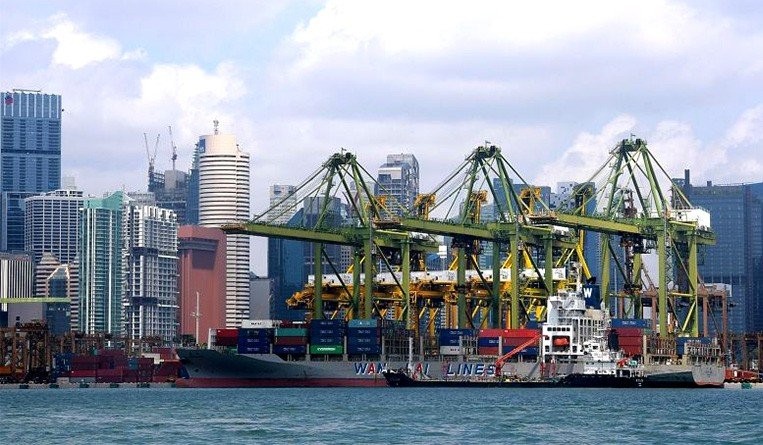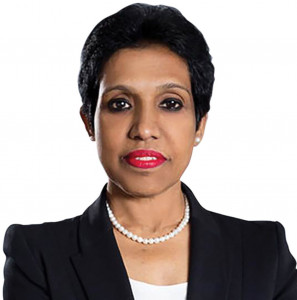Singapore: Post-grant Patent Amendments Refused in Hitachi Case
31 July 2019

In a recently decided case, Singapore Shipping Association and Association of Singapore Marine Industries v. Hitachi, Ltd. and Mitsubishi Shipbuilding Co. Ltd. [2019] SGIPOS 5, the Registrar of Patents of the Intellectual Property Office of Singapore (IPOS) refused post-grant amendments to the claims of Singapore Patent No. 159788 under Section 83(1) of the Patents Act, which gives the Registrar a discretionary power to allow or refuse amendments to a patent during revocation proceedings.
By way of background, the Singapore patent application was filed as a national phase application based on international patent application No. PCT/ JP2008/066536. The Singapore patent was granted on October 29, 2010, in the name of Hitachi and Mitsubishi Shipbuilding (the proprietors) under the selfassessment system, relying on the granted claims of Japan Patent No. 4509156. The Singapore patent was therefore not locally examined as to substance and was granted with claims identical to the granted claims of the Japan patent.
After the grant of the Singapore patent, the validity of the Japan patent was challenged in three invalidation trials in Japan on the ground that the claims did not fully satisfy the patentability criteria. The invalidation trials resulted in amendments to the Japan patent claims. Consequently, the claims currently in force in Japan are narrower in scope than the claims of the Singapore patent. These amended claims currently in force in Japan are identical to the proposed amended claims in this opposition case in Singapore.
Six months after the third invalidation case in Japan ended, an application for revocation of the Singapore patent was filed by Singapore Shipping Association and Association of Singapore Marine Industries (the opponents) before IPOS. Subsequently, on November 2, 2017, the proprietors filed their counter-statement along with proposed amendments to the patent claims. The opponents formally objected to the proposed amendments on the following discretionary grounds:
1. Failure of the proprietors to make full disclosure concerning the proposed amendments;
2. Undue delay on the part of the proprietors in applying for the proposed amendments; and
3. Unfair advantage.
Section 84(3) of the Singapore Patents Act specifies the criteria on allowable post-grant amendments to the patent specifications, which are: i) the amendments should not result in the specification disclosing any additional matter, and ii) the amendments should not extend the protection conferred by the patent. However, these statutory criteria were not pleaded by the opponents. Instead, the opponents based their opposition on the above discretionary grounds.
The first ground was quickly dismissed by the Registrar who found that the proprietors had put forward all the facts relevant to the reasons for the proposed amendments.
Regarding the two remaining grounds, the Registrar decided in favour of the opponents, whereby the Registrar found that there was an undue delay on the part of the proprietors in applying to amend the patent and there was an unfair advantage, which the proprietors sought to gain during the period of undue delay.
Undue delay and unfair advantage
The third invalidation trial in Japan ended in December 2016 and, after almost 11 months, the proprietors sought to amend the Singapore patent. The proprietors reasoned out that the delay of almost 11 months was because they needed time to analyse the necessary amendments and they had to look for new patent agents to act for them. However, even before the end of the third invalidation trial in Japan, one of the proprietors, Hitachi, had already conducted business meetings to try to monetize the Singapore patent in its unamended state. It therefore appeared that Hitachi could spend time and effort in pursuing business leads but could not direct its resources towards amending the Singapore patent without undue delay.
Furthermore, Hitachi intensified the undue delay by obtaining an unfair advantage from the Singapore patent by offering to sell or license the Singapore patent in its unamended state and even producing a brochure showing the unamended claims, even though Hitachi knew or should have known the necessity to amend.
In view of the above, the Registrar refused the proprietors’ proposed amendments to the claims of the Singapore patent.
Conclusion
The above highlights the importance of amending Singapore patent claims as soon as the proprietor is aware of the need to amend, e.g. if a new relevant prior art is found in other jurisdiction, although the act does not specify a time limit for amending patent specifications after grant.







